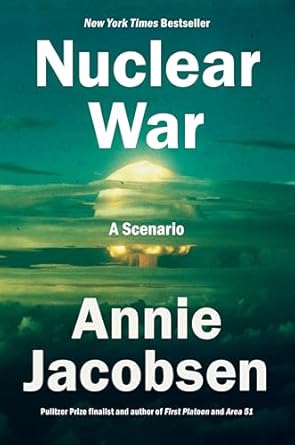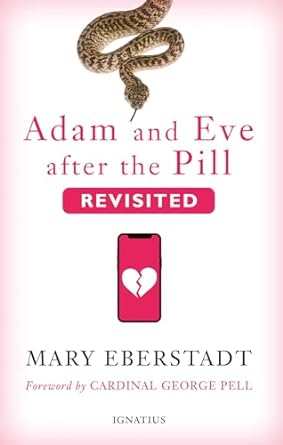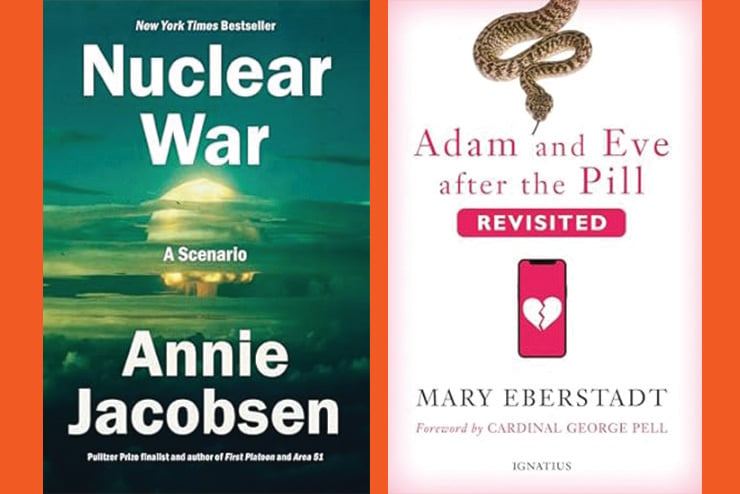
Nuclear War: A Scenario, by Annie Jacobsen (Dutton; 400 pp., $30.00). You probably read Jonathan Schell’s bestseller The Fate of the Earth if you attended college in the 1980s. The book’s three essays about nuclear war scared the bejesus out of Cold War-era students until Francis Fukuyama declared “the end of history” in 1989.
As we now know, history didn’t end. Nor did nuclear weapons disappear. Americans just forgot about them. Instead, we cheered as our elite spread capitalism, democracy, and, more recently, rainbow flags to unenlightened geopolitical backwaters. Vladimir Putin finally protested America’s imperial expansion through NATO by invading Ukraine. Annie Jacobsen’s Nuclear War: A Scenario gives a harrowing account of what happens should Putin go nuclear.
Jacobsen far exceeds Schell in laying out the horrors of modern nuclear war. Her hypothetical scenario involves a North Korean ICBM hitting the United States. She spells out the sequence of events over the first 72 minutes after the attack. More than 1 million die within two minutes of detonation; more than 2 billion die by the war’s end. And that’s just humans. Post-Nagasaki bombs can “vanish land.” Yale’s Paul Bracken described the futility: “There is no way to win a nuclear war once it starts … since it ends with complete Armageddon-like destruction.”
Three minutes and 15 seconds into her scenario, the national security advisor rushes to inform the president, who must make the most momentous decision in human history. I can only imagine Dr. Jill Biden screaming, “Joe, wake up!” or J. D. Vance trying to pull President Trump away from his social media posts.
Incomplete sentences litter Jacobsen’s work like nuclear fallout, likely an attempt to depict urgency. However, urgency vanishes when political correctness demands verbosity, as in “no CNN reporter in D.C. answers his or her phone.” Pronouns matter! But kudos for choosing New York City’s hideous new Hudson Yards real estate development as a potential target. I never cheer Armageddon-like destruction, but this New Yorker can’t think of an architectural monstrosity more deserving of pulverization. Fingers crossed.
Pray for peace in Ukraine! Once the nukes start flying, “it will be too late.” Read Jacobsen before it’s too late and you’re left wondering why “no one did anything substantial to prevent World War III.”
(Mark G. Brennan)

Adam and Eve after the Pill, Revisited, by Mary Eberstadt (Ignatius Press; 199 pp., $19.95). This book is substantially more than a revision of Eberstadt’s Adam and Eve After the Pill (2012). As the author notes, the original work was a “microscopic” analysis of the effects of the Sexual Revolution on individuals and their relationships; her new book is a “macroscopic” look at the Revolution’s wider fallout—its “extended and compounded effects on society, politics, and Christianity itself.”
The consequences of this attack on the family have been devastating and all but irreversible.
Stated in brief: In the beginning, there was the Pill, which gave birth to an ideology of liberation that made legalized abortion an inevitable necessity. These, in turn, gave rise to a number of ill effects that spread through American society like a plague. Fertility rates began to plummet; easily available sex caused men to question the need for marriage and fidelity; children increasingly grew up in single-parent households, robbed of the dense web of familial connections and support that American children had known in the past. Those same children, on the cusp of adulthood, began to search for alternatives to the families they had never known—and found them in a variety of political cults, such as Antifa and Black Lives Matter.
Virtually half of our children lack real fathers and, thus, any strong sense of parental authority in their lives. This results in what Eberstadt calls the “fury of the fatherless.” First comes the rage, followed by the ideology that rationalizes the rage. Replacing the natural authority of fathers is the collective authority of the group, sexually or politically identitarian. By 2020, America’s “disenfranchised children achieved critical mass.”
The state itself abets the Revolution. “In effect,” writes Eberstadt, “the state has become the angel investor of family dysfunction.” Under the guise of compassionate government, the state responds to the needs of “fractured families” while ensuring more of the same—for example, by providing incentives that perpetuate and multiply single-parent households.
The foregoing observations don’t even begin to exhaust the riches of Eberstadt’s unflinching examination of the decades of chaos that have swept across America since the early days of the Sexual Revolution. Yet it shouldn’t be supposed that her assessment is unremittingly dark. As she writes, the “legacy of the rebellion” seems to be inviting more and more scrutiny even from those outside the conservative camp—even from within the precincts of the secular intelligentsia. Thus it may be that a “more enlightened civilization may turn out to be closer than anyone has yet guessed.”
(Jack Trotter)

Leave a Reply